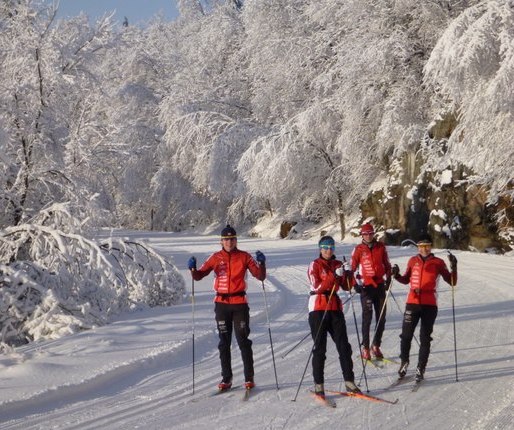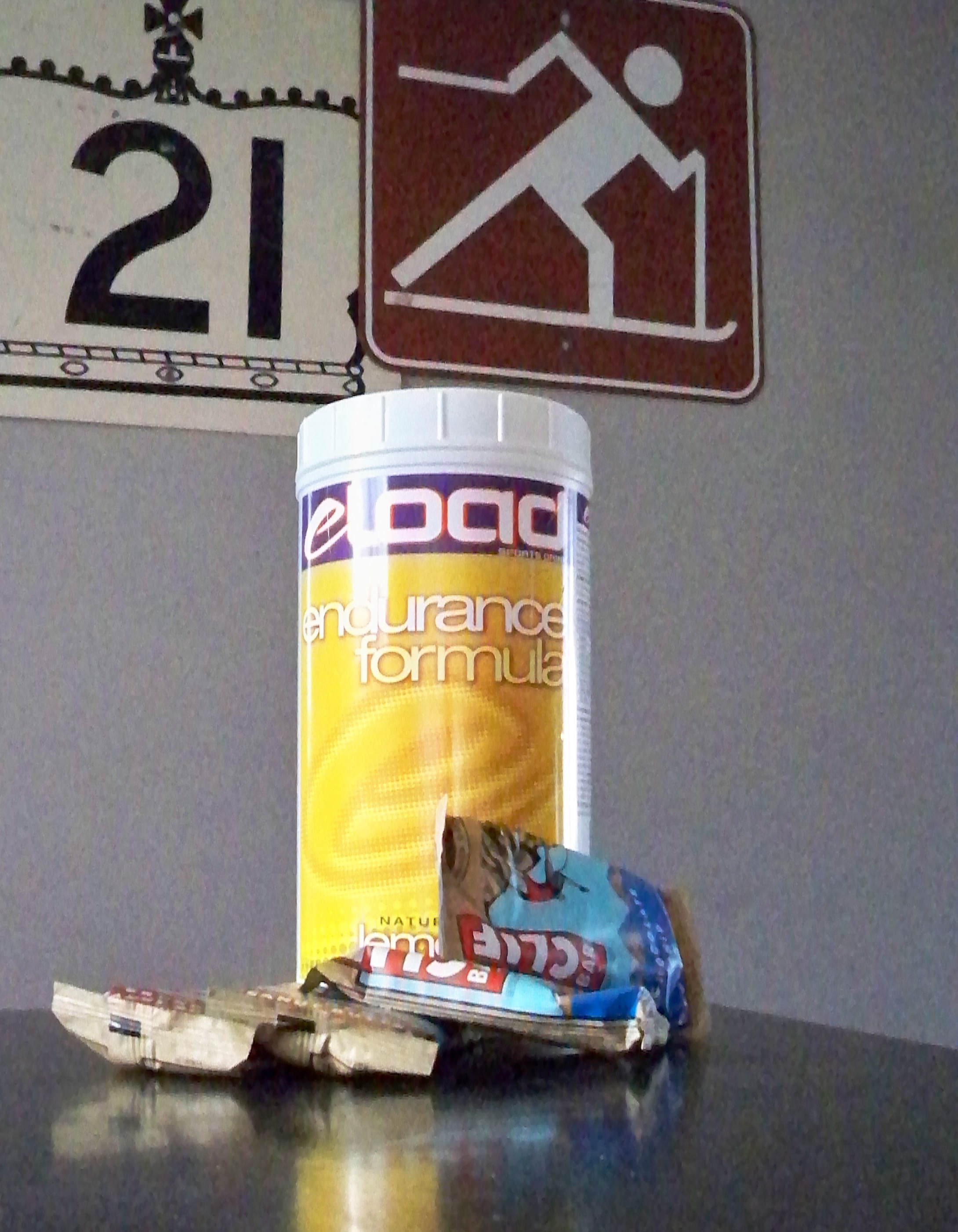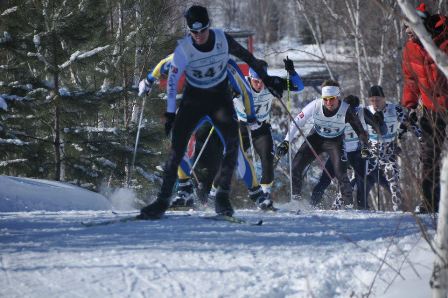I’ve joked before that snow to skiers is like cocaine to an addict. It’s that beautiful white powder that we seek out and obsess over because it brings us so much pleasure. And when you factor in all the training and competing, it becomes something for which we sacrifice other endeavours and spend excessive amounts of money and time on!

mmhmm, that’s my dope.
I say this jokingly but in seriousness exercise can become an addiction, or something that is abused or depended on. Substance abuse involves taking a drug chronically and excessively, where the drug is a main focus in one’s life. Substance dependence is one step further in, where withdrawal can occur because the body has adapted to having the drug present in the system (Kolb & Whishaw, 2011). It’s not too much of a stretch to see that exercise can fit this definition of addiction. For a thorough discussion on this topic, please see Freimuth, Moniz, and Kim (2011).
I think readers of this site can agree that exercise is really enjoyable. One commonly touted reason to explain why people might get hooked on it is the release of endorphins that come with strenuous activity. Endorphins, so named because they are the ‘endogenous morphine’, are produced naturally in the body and have the same effects in the nervous system as opioid drugs (ie. morphine and heroin). Endorphins are said to cause the ‘runner’s high’, although the evidence for this is not unequivocal. Still, it is very possible that exercise-induced endorphin release could contribute to the good feelings associated with a hard workout (Dishman & O’Connor, 2009), and maybe even the desire to exercise to excess. Of course other societal and personal factors may play into a behavioural addiction like this, such as exercising to match a certain physical image or character type, or exercising to dissipate stress.
Presumably, healthy, competitive athletes keep their ‘substance use’ habits in check. We won’t continue to train in the same way when injured and we know (albeit from experience) to avoid over-training. We can balance training with work and relationships, and we can find ways to not get too cranky* if we have to miss a training session...right???
*Provided we’re not 'hangry' at the same time. That’s another biology topic in itself!

Always avoid the 'Hangry' (i.e. anger caused by hunger). Pack a Clif bar and eLoad!!
But what about the neurobiology of winning? There is an insane drive in the most competitive racers, and I can’t help but wonder what is behind this. Yes, there is the satisfaction that comes from the pursuit of a goal, and the excitement of a race weekend, but I wonder, what are the basal mechanisms behind this?

If you’ve raced in Sudbury, you may recall the pain caused by “the Wall” at Laurentian when you see this picture! What drives them to the top?
I came across an interesting study, that used fighting in Syrian hamsters to model some of the behavioural and neurochemical changes that occur in winning. A few findings resulted. For one thing, in hampsters presented with repeated fighting opportunities, dominating in the fight (winning) increased the probability of winning in subsequent encounters, while losing increased the probability of losing again. Additionally, when the brains of winning hamsters were compared to the brains of naïve hamsters (who had not been previously exposed to fighting), evidence of increased dopamine transmission to a certain brain region, the shell of the nucleus accumbens, was observed (Schwartzer, Ricci, & Melloni, 2013). This is really interesting because this is a key effect caused by drugs of abuse. If the brain of a winner is experiencing similar effects to those produced by cocaine, it’s no wonder a racer is eager to win - especially if it is something the person has experienced frequently before! Coupis and Kennedy (2008) similarly showed that dopamine signalling to the nucleus accumbens reinforces aggressive behaviour in mice. In other words, this brain pathway makes aggressive behaviour feel rewarding, in the same way that drugs of abuse feel rewarding. Dopamine alterations in the brain of a person who is addicted to drugs lead to that person feeling that the drug is critical to survival. Do alterations in dopamine transmission in the brains of competitive athletes drive them to compete as if winning a race were critical to survival? It doesn’t seem like too much of a stretch to me.
The biological mechanisms that drive people are fascinating. Over all, I guess if our drug is driving us to ski to the other side of a hill faster, well hey, it could be worse!
References:
Couppis, M.H., and Kennedy, C.H. 2008. The rewarding effect of aggression is reduced by nucleus accumbens dopamine receptor antagonism in mice. (Abstract). Psychopharmacology, 197: 449-456.
Dishman, R.K. and O’Connor, P.J. 2009. Lessons in exercise neurobiology: The case of endorphins. Mental Health and Physical Activity, 2: 4–9.
Freimuth, M., Moniz, S., and Kim, S.R. 2011. Clarifying exercise addiction: Differential diagnosis, co-occurring disorders, and phases of addiction. International Journal of Environmental Research and Public Health, 8: 4069-4081. doi:10.3390/ijerhh8104069
Kolb, B. and Whishaw, I.Q. 2011. An Introduction to Brain and Behaviour (3rd Edition). New York, NY: Worth Publishers.
Schwartzer, J.J., Ricci, L.A., and Melloni, R.H. 2013. Prior fighting experience increases aggression in Syrian hamsters: Implications for a role of dopamine in the winner effect. Aggressive behaviour, 39: 290-300.

